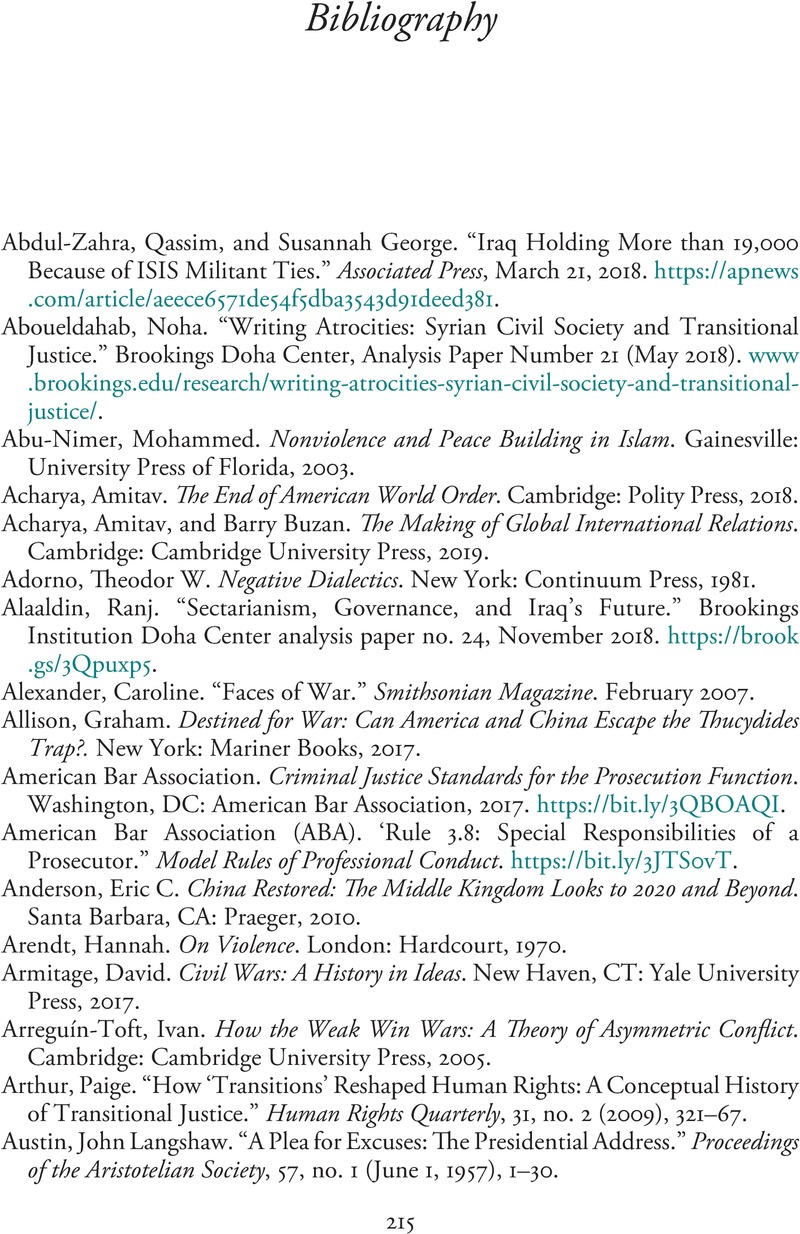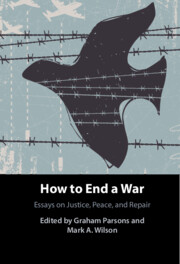Book contents
- How to End a War
- How to End a War
- Copyright page
- Contents
- Contributors
- Acknowledgments
- Introduction
- Chapter 1 The Lament of the Demobilized
- Chapter 2 Moral Injury and Moral Failure
- Chapter 3 Stoic Grit, Moral Injury, and Resilience
- Chapter 4 Political Humiliation and the Sense of Replacement
- Chapter 5 Minimum Moral Thresholds at War’s End
- Chapter 6 Ending Endless Wars
- Chapter 7 Forever Wars
- Chapter 8 Two Conceptions of the Proportionality Budget for Jus Ex Bello
- Chapter 9 Toward a Post Bellum Lieber Code
- Chapter 10 Reconciliation Is Justice – and a Strategy for Military Victory
- Bibliography
- Index
- References
Bibliography
Published online by Cambridge University Press: 02 March 2023
- How to End a War
- How to End a War
- Copyright page
- Contents
- Contributors
- Acknowledgments
- Introduction
- Chapter 1 The Lament of the Demobilized
- Chapter 2 Moral Injury and Moral Failure
- Chapter 3 Stoic Grit, Moral Injury, and Resilience
- Chapter 4 Political Humiliation and the Sense of Replacement
- Chapter 5 Minimum Moral Thresholds at War’s End
- Chapter 6 Ending Endless Wars
- Chapter 7 Forever Wars
- Chapter 8 Two Conceptions of the Proportionality Budget for Jus Ex Bello
- Chapter 9 Toward a Post Bellum Lieber Code
- Chapter 10 Reconciliation Is Justice – and a Strategy for Military Victory
- Bibliography
- Index
- References
Summary

- Type
- Chapter
- Information
- How to End a WarEssays on Justice, Peace, and Repair, pp. 215 - 232Publisher: Cambridge University PressPrint publication year: 2023



